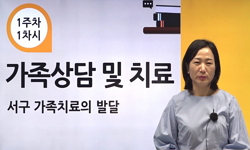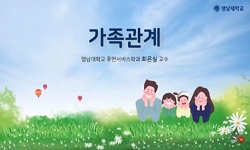Purpose: The purpose of this study is to understand family members' experience of deciding to withdraw life-sustaining treatments for terminally-ill patients in an unconscious state. Methods: Data were collected by performing an in-depth interview wit...
http://chineseinput.net/에서 pinyin(병음)방식으로 중국어를 변환할 수 있습니다.
변환된 중국어를 복사하여 사용하시면 됩니다.
- 中文 을 입력하시려면 zhongwen을 입력하시고 space를누르시면됩니다.
- 北京 을 입력하시려면 beijing을 입력하시고 space를 누르시면 됩니다.

의식 없는 말기환자 가족의 연명치료 중단 결정 경험 = Family Decision-Making to Withdraw Life-Sustaining Treatment for Terminally-Ill Patients in an Unconscious State
한글로보기https://www.riss.kr/link?id=A100825769
-
저자
김명희 (부산대학교) ; 강은희 (경남정보대학교) ; 김미영 (경남정보대학교) ; Kim, Myung-Hee ; Kang, Eun-Hee ; Kim, Mi-Young

- 발행기관
- 학술지명
- 권호사항
-
발행연도
2012
-
작성언어
Korean
- 주제어
-
등재정보
KCI등재
-
자료형태
학술저널
- 발행기관 URL
-
수록면
147-154(8쪽)
-
KCI 피인용횟수
9
- 제공처
-
0
상세조회 -
0
다운로드
부가정보
다국어 초록 (Multilingual Abstract)
Purpose: The purpose of this study is to understand family members' experience of deciding to withdraw life-sustaining treatments for terminally-ill patients in an unconscious state. Methods: Data were collected by performing an in-depth interview with eight terminally-ill patients' family members who decided to withdraw life-sustaining treatments. Colaizzi's phenomenological method was used for data analysis. Results: Questions were classified into 12 groups and finally into five categories. The five categories were about family members' frustration with patient's condition, emotional preparation for the patient's death upon medical professionals' recommendation, patient's wishes, exhaustion due to caring and past experiences related to life-sustaining treatment. Conclusion: Using the five categories, hospice and palliative professionals could better understand family members' decision making experience of withdrawing life-sustaining treatments for terminally-ill patients. Based on that, the family members could be provided with appropriate counseling and care, which in turn could improve hospice and palliative care intervention.
국문 초록 (Abstract)
목적: 본 연구의 목적은 의식 없는 말기환자 가족의 연명치료 중단 결정 경험을 이해하기 위함이다. 방법: 자료는 의 없는 말기환자의 연명치료 중단 결정을 한 8명의 가족으로부터 심층면담...
목적: 본 연구의 목적은 의식 없는 말기환자 가족의 연명치료 중단 결정 경험을 이해하기 위함이다. 방법: 자료는 의 없는 말기환자의 연명치료 중단 결정을 한 8명의 가족으로부터 심층면담을 통해 수집하였다. Colaizzi의 현상학적 분석 방법이 자료 분석을 위해 사용되었다. 결과: 주제는 12개의 주제모음으로 분류되었고, 12개의 주제모음은 마침내 5개의 범주로 통합되었다. 5개의 범주는 환자상태로 인한 절망감, 의료진의 권고에 마음을 비움, 환자의 바램, 돌봄으로 인한 가족의 소진, 연명치료와 관련된 과거의 경험이었다. 결론: 다섯 개의 범주를 통하여 의식 없는 말기환자 가족의 연명치료 중단 결정 과정에서 발생할 수 있는 현상들을 이해함으로써 적절한 상담과 간호를 제공하여 보다 바람직한 호스피스 완화의료 중재가 필요하다고 본다.
참고문헌 (Reference)
1 송태준, "한 대학병원 종양내과에서 사망한 환자들의 심폐소생술 금지 지시 결정 요소" 대한내과학회 74 (74): 403-410, 2008
2 김계순, "연명치료중단에 대한 의료인의 민사적 책임" 민주주의법학연구회 (38) : 137-162, 2008
3 윤영호, "바람직한 임종을 위한 호스피스•완화의료 및 사회적 대책" 대한의사협회 52 (52): 880-885, 2009
4 Heo DS, "Withholding futile interventions from terminally ill cancer patients" 44 : 956-962, 2001
5 Koh YS, "Withdrawal of life-sustaining treatment for patients who are terminally ill" 45 : 650-652, 2002
6 Kim JH, "Treatment withdrawal: characteristics of critically ill patients and experience of primary caregivers" Yonsei Univ 2002
7 Weiss GL, "The do-not-resuscitate decision: the context, process, and consequences of DNR orders" 24 : 307-323, 2000
8 Lautrette A, "Surrogate decision makers for incompetent ICU patients: a European perspective" 14 : 714-719, 2008
9 Shin KR, "Qualitative research methodology" Ewha Womans Univ Comp 2004
10 Colaizzi PF, "Psychological research as the phenomenologist views it, In Existenial-phenomenological alternatives for psychology" Oxford University Press 48-71, 1978
1 송태준, "한 대학병원 종양내과에서 사망한 환자들의 심폐소생술 금지 지시 결정 요소" 대한내과학회 74 (74): 403-410, 2008
2 김계순, "연명치료중단에 대한 의료인의 민사적 책임" 민주주의법학연구회 (38) : 137-162, 2008
3 윤영호, "바람직한 임종을 위한 호스피스•완화의료 및 사회적 대책" 대한의사협회 52 (52): 880-885, 2009
4 Heo DS, "Withholding futile interventions from terminally ill cancer patients" 44 : 956-962, 2001
5 Koh YS, "Withdrawal of life-sustaining treatment for patients who are terminally ill" 45 : 650-652, 2002
6 Kim JH, "Treatment withdrawal: characteristics of critically ill patients and experience of primary caregivers" Yonsei Univ 2002
7 Weiss GL, "The do-not-resuscitate decision: the context, process, and consequences of DNR orders" 24 : 307-323, 2000
8 Lautrette A, "Surrogate decision makers for incompetent ICU patients: a European perspective" 14 : 714-719, 2008
9 Shin KR, "Qualitative research methodology" Ewha Womans Univ Comp 2004
10 Colaizzi PF, "Psychological research as the phenomenologist views it, In Existenial-phenomenological alternatives for psychology" Oxford University Press 48-71, 1978
11 Kwon SH, "Patient’s decision-making rights on ceasing treatments for prolongation of life" Dong-A Univ 2009
12 Heo DS, "Overview and issues" 77 (77): S1026-S1034, 2009
13 Parse RR, "Man-living-health: a theory of nursing" Willy 1981
14 Baggs JG, "Intensive care unit cultures and end-of-life decision making" 22 : 159-168, 2007
15 Wilson DM, "Highlighting the role of policy in nursing practice through a comparison of “DNR” policy influences and “no CPR” decision influences" 44 : 272-279, 1996
16 McPherson CJ, "Family caregivers’ assessment of symptoms in patients with advanced cancer: concordance with patients and factors affecting accuracy" 35 : 70-82, 2008
17 Jang SO, "Experience of family with DNR and change of care after DNR decision-making in intensive care units" Gyeongsang National Univ 2000
18 Park YO, "Experience of family members on deciding to withdraw life-sustaining treatment for patients who are terminally ill" Yonsei Univ 2003
19 Kim SK, "Experience of family & nurse related to the process of DNR decision" Yonsei Univ 2006
20 Sohn MS, "Ethical and legal aspect of termination of hospital care" 41 : 707-711, 1998
21 Guba EG, "Effective evaluation" Josscy- Bass Publishers 1981
22 한성숙, "DNR(Do-Not-Resuscitate)에 대한 의사와 간호사의 경험 및 인지도" 간호행정학회 11 (11): 255-264, 2005
23 Pence GE, "Classic cases in medical ethics: accounts of cases that have shaped medical ethics, with philosophical, legal, and historical backgrounds. 3rd ed" McGraw-Hill 29-51, 2000
24 Park CS, "An attitude of the withholding treatment" Catholic Univ 2004
25 Kang YS, "A study on decision making of DNR: focused on caner patient’s cases" Sungkyunkwan Univ 2005
동일학술지(권/호) 다른 논문
-
- 한국호스피스완화의료학회
- 강경아
- 2012
- KCI등재
-
완화의료연구에서의 결과에 대한 검토: 삶의 질을 중심으로
- 한국호스피스완화의료학회
- 황인철
- 2012
- KCI등재
-
말기암환자에 대한 여명 예측교육 후의 의료인의 자신감과 정확도 및 지식의 변화
- 한국호스피스완화의료학회
- 박준석
- 2012
- KCI등재
분석정보
인용정보 인용지수 설명보기
학술지 이력
| 연월일 | 이력구분 | 이력상세 | 등재구분 |
|---|---|---|---|
| 2027 | 평가예정 | 재인증평가 신청대상 (재인증) | |
| 2021-03-01 | 학술지명변경 | 한글명 : 한국호스피스완화의료학회지 -> Journal of Hospice and Palliative Care외국어명 : The Korean Journal of Hospice and Palliative Care -> Journal of Hospice and Palliative Care |  |
| 2021-01-01 | 평가 | 등재학술지 유지 (재인증) |  |
| 2018-01-01 | 평가 | 등재학술지 유지 (등재유지) |  |
| 2015-01-01 | 평가 | 등재학술지 유지 (등재유지) |  |
| 2011-01-01 | 평가 | 등재학술지 선정 (등재후보2차) |  |
| 2010-01-01 | 평가 | 등재후보 1차 PASS (등재후보1차) |  |
| 2008-01-01 | 평가 | 등재후보학술지 선정 (신규평가) |  |
학술지 인용정보
| 기준연도 | WOS-KCI 통합IF(2년) | KCIF(2년) | KCIF(3년) |
|---|---|---|---|
| 2016 | 0.88 | 0.88 | 1.13 |
| KCIF(4년) | KCIF(5년) | 중심성지수(3년) | 즉시성지수 |
| 0.99 | 0.98 | 1.534 | 0.13 |




 ScienceON
ScienceON






